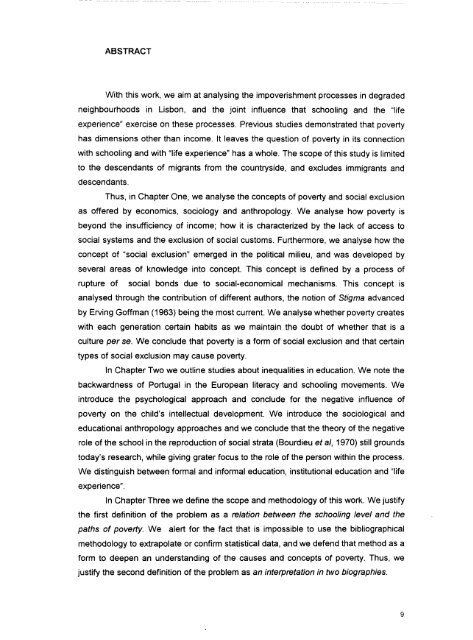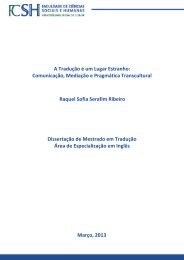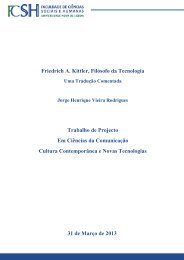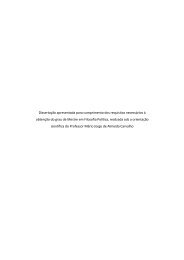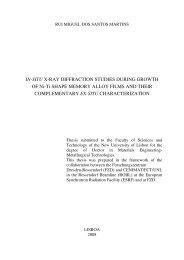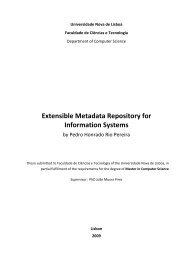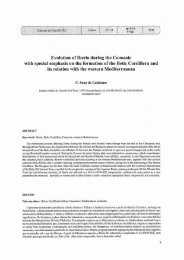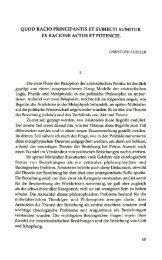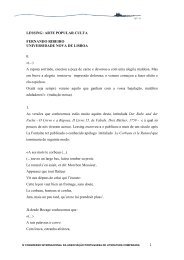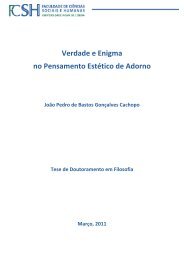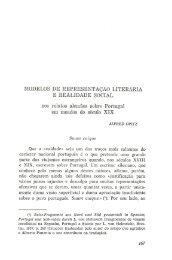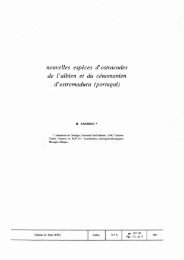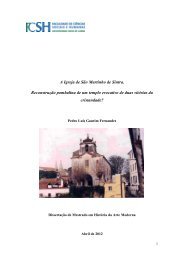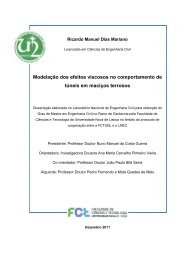Habilitações escolares e percursos de pobreza nos bairros ...
Habilitações escolares e percursos de pobreza nos bairros ...
Habilitações escolares e percursos de pobreza nos bairros ...
You also want an ePaper? Increase the reach of your titles
YUMPU automatically turns print PDFs into web optimized ePapers that Google loves.
ABSTRACT<br />
With this work, we aim at analysing the impoverishment processes in <strong>de</strong>gra<strong>de</strong>d<br />
neighbourhoods in Lisbon, and the joint influence that schooling and the "life<br />
experience" exercise on these processes. Previous studies <strong>de</strong>monstrated that poverty<br />
has dimensions other than income. It leaves the question of poverty in its connection<br />
with schooling and with "life experience" has a whole. The scope of this study is limited<br />
to the <strong>de</strong>scendants of migrants from the countrysi<strong>de</strong>, and exclu<strong>de</strong>s immigrants and<br />
<strong>de</strong>scendants.<br />
Thus, in Chapter One, we analyse the concepts of poverty and social exclusion<br />
as offered by economics, sociology and anthropology. We analyse how poverty is<br />
beyond the insufficiency of income; how it is characterized by the lack of access to<br />
social systems and the exclusion of social customs. Furthermore, we analyse how the<br />
concept of "social exclusion" emerged in the political milieu, and was <strong>de</strong>veloped by<br />
severa1 areas of knowledge into concept. This concept is <strong>de</strong>fined by a process of<br />
rupture of social bonds due to social-economical mechanisms. This concept is<br />
analysed through the contribution of different authors, the notion of Stigma advanced<br />
by Erving Goffman (1 963) being the most current. We analyse whether poverty creates<br />
with each generation certain habits as we maintain the doubt of whether that is a<br />
culture per se. We conclu<strong>de</strong> that poverty is a form of social exclusion and that certain<br />
types of social exclusion may cause poverty.<br />
In Chapter Two we outline studies about inequalities in education. We note the<br />
backwardness of Portugal in the European literacy and schooling movements. We<br />
introduce the psychological approach and conclu<strong>de</strong> for the negative influence of<br />
poverty on the child's intellectual <strong>de</strong>velopment. We introduce the sociological and<br />
educational anthropology approaches and we conclu<strong>de</strong> that the theory of the negative<br />
role of the school in the reproduction of social strata (Bourdieu et a/, 1970) still grounds<br />
today's research, while giving grater focus to the role of the person within the process.<br />
We distinguish between formal and informal education, institutional education and "life<br />
experience".<br />
In Chapter Three we <strong>de</strong>fine the scope and methodology of this work. We justify<br />
the first <strong>de</strong>finition of the problem as a relation between the schooling leve1 and the<br />
paths of poverty. We alert for the fact that is impossible to use the bibliographical<br />
methodology to extrapolate or confirm statistical data, and we <strong>de</strong>fend that method as a<br />
form to <strong>de</strong>epen an un<strong>de</strong>rstanding of the causes and concepts of poverty. Thus, we<br />
justify the second <strong>de</strong>finition of the problem as an interpretation in two biographies.


